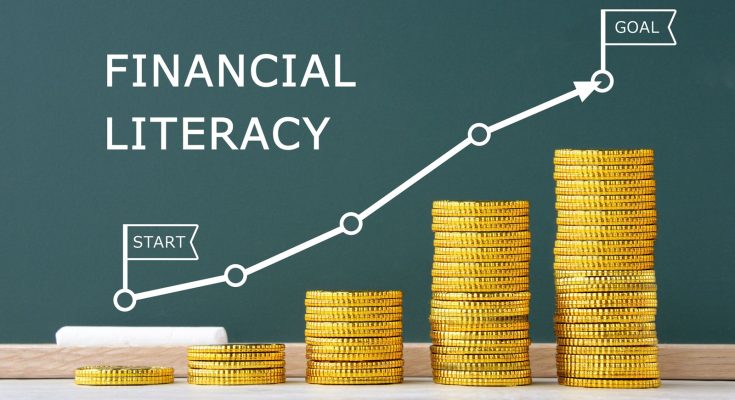Introduction to Financial Literacy
Understanding your finances can feel overwhelming. Yet, financial literacy is a vital skill that everyone should master. It’s not just about knowing how to save money; it encompasses understanding credit, managing debts, and planning for the future. In today’s fast-paced world, being financially literate can empower you to make informed decisions that positively impact your life.
Imagine confidently navigating loans or investments without second-guessing yourself. Picture having a budget tailored perfectly to your lifestyle while still allowing for fun. Financial literacy opens doors and brings peace of mind in an often chaotic economic landscape.
Embarking on this journey doesn’t have to be daunting. There are numerous resources available and simple strategies anyone can adopt to boost their knowledge and skills in financial matters. Let’s explore actionable steps you can take to enhance your financial literacy today!
Why is Financial Literacy Important?
Financial literacy is crucial for navigating today’s complex economic landscape. It empowers individuals to make informed decisions about their money, leading to greater financial stability.
Understanding concepts like budgeting, saving, and investing can significantly impact your quality of life. When you’re financially literate, you can identify opportunities that align with your goals and avoid pitfalls that could jeopardize your future.
Moreover, financial literacy fosters confidence in managing personal finances. People who grasp these principles are better equipped to handle unexpected expenses and plan for major life events like buying a home or retiring comfortably.
Additionally, it promotes responsible borrowing habits. Knowing how interest rates work or what constitutes a good loan enables individuals to take on debt wisely rather than falling into traps of high-interest loans or credit card debt.
Resources for Improving Financial Literacy
Improving your financial literacy is easier than ever with a variety of resources available. Start by exploring online courses that focus on budgeting, investing, and credit management. Websites like Coursera and Khan Academy offer free classes led by experts.
Podcasts are another great option. Programs such as “The Dave Ramsey Show” or “BiggerPockets Money Podcast” provide valuable insights while you’re on the go.
Don’t overlook books either. Titles like “Rich Dad Poor Dad” and “The Total Money Makeover” can shift your mindset about money management.
Consider joining local workshops or community groups dedicated to financial education. Networking with others who share similar goals can enhance your learning experience significantly.
Tips for Managing Your Finances
Managing your finances can feel overwhelming. Start with the basics: track your income and expenses. Knowing where your money goes is essential for better decision-making.
Use free apps or spreadsheets to make this process easier. Visualizing your spending habits helps identify areas for improvement.
Create a realistic budget that aligns with your goals. Prioritize needs over wants, and allocate funds accordingly. Stick to it as much as possible.
Don’t forget about setting aside an emergency fund. Aim for three to six months’ worth of living expenses, which provides peace of mind when unexpected costs arise.
Regularly review and adjust your financial plan based on changes in income or lifestyle. Flexibility is key to staying on top of things.
Don’t hesitate to seek professional advice if needed. Financial advisors can offer tailored strategies suited to your unique situation.
Budgeting Techniques
Budgeting techniques can transform your financial approach. The first method to consider is the zero-based budget. This technique ensures every dollar has a purpose, eliminating wasteful spending.
Another popular option is the 50/30/20 rule. Allocate 50% of your income to needs, 30% to wants, and reserve 20% for savings or debt repayment. It’s straightforward and easy to track.
If you prefer visual tools, try the envelope system. Dividing cash into envelopes labeled for various expenses helps curb overspending in specific categories.
Don’t overlook technology—budgeting apps offer convenience and real-time tracking of expenses. They often come with features that remind you about bills or help set savings goals.
Regularly review your budget. Adjust it as needed based on changing circumstances or new financial goals. Staying flexible will enhance your budgeting success over time.
Investing and Retirement Planning
Investing is a crucial step in building wealth and securing your financial future. It’s not just about picking stocks; it involves understanding risk, diversification, and time horizons. Knowledge of different investment vehicles can empower you.
Start by researching mutual funds, ETFs, and individual stocks. Each has its pros and cons depending on your goals. Don’t shy away from seeking professional advice if needed.
Retirement planning often feels overwhelming but breaks down into manageable pieces. Determine how much you’ll need to retire comfortably based on your lifestyle expectations.
Utilize retirement accounts like 401(k)s or IRAs for tax advantages. The earlier you start contributing, the more compound interest works in your favor over time.
Regularly review your investments as life circumstances change to stay aligned with your goals without losing sight of market dynamics. Stay informed to make proactive adjustments that serve you well throughout the years ahead.
Conclusion
Improving your financial literacy is a journey that offers numerous benefits. By understanding the ins and outs of personal finance, you’re better equipped to make informed decisions about budgeting, saving, investing, and planning for retirement.
Embracing resources like books, online courses, and workshops can significantly enhance your knowledge base. Utilize tools such as budgeting apps or financial calculators to help track your progress. Remember that managing finances isn’t just about numbers; it’s also about setting realistic goals and developing habits that will serve you well in the long run.
Implement effective budgeting techniques tailored to your lifestyle. Whether it’s the 50/30/20 rule or zero-based budgeting, find what works best for you. When it comes to investing and retirement planning, start early and diversify your portfolio to minimize risk.
Financial literacy empowers individuals with confidence in their financial decisions. As you continue on this path of learning and growth, remember that every step taken contributes to a more secure future. Embrace the process; small changes lead to significant impacts over time.



